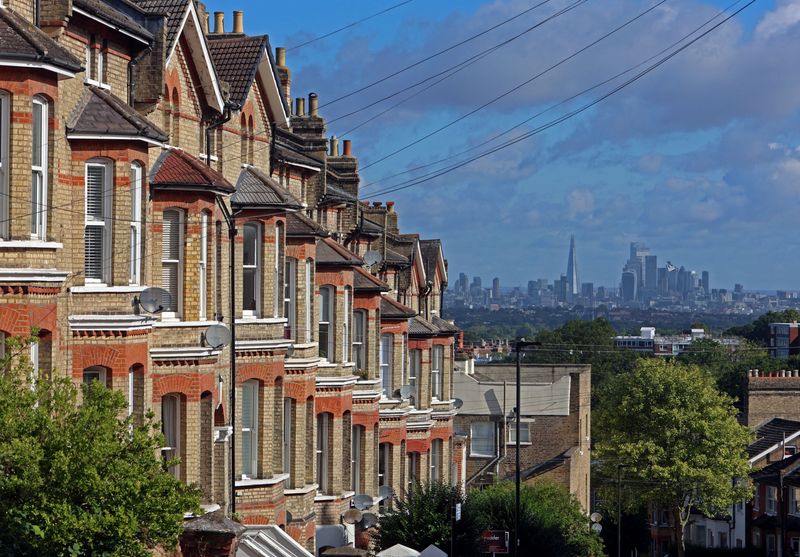By Andy Bruce
LONDON (Reuters) -British house prices rose 2.5% in the year to January, the strongest annual growth rate for a year, according to data from mortgage lender Halifax on Wednesday which added to tentative signs of momentum in the housing market.
In month-on-month terms, house prices rose 1.3%, which marked the fourth consecutive increase and the biggest monthly gain since June 2022.
Kim Kinnaird, director of mortgages at Halifax, said a recent drop in mortgage rates, falling inflation and a resilient labour market had boosted confidence among buyers and sellers in early 2024.
The Bank of England's next move in interest rates looks likely to be downwards - although when is open to question - which may support housing market activity in future months.
In a speech on Wednesday, BoE Deputy Governor Sarah Breeden said signs of resilience in the housing market could suggest that demand in the economy is stronger than the central bank expected.
Kinnaird added that there were still reasons for caution in the housing market outlook.
"Affordability challenges are likely to remain and further modest falls should not be ruled out, against a backdrop of broader uncertainty in the economic environment," she said.
Other gauges of the housing market have also pointed to a brighter outlook. Last week rival mortgage lender Nationwide said house prices had risen 0.7% in monthly terms in January - marking a fifth month without any declines.
"As the (Halifax) increase mirrored a large rise in the Nationwide index for the same month, there is little doubt that house prices made a strong start to the year," said Andrew Wishart, senior property economist at consultancy Capital Economics.
Britain's housing market - like those in many Western countries - boomed during the COVID-19 pandemic, boosted by record-low interest rates, temporary tax breaks and greater demand for living space as people worked from home.

Official figures for November showed that British house prices had fallen 2% from their peak in September 2022, but were still 24% higher than before the pandemic.
Homebuilder Barratt, which on Wednesday announced it will buy its smaller rival Redrow, said the economic backdrop was challenging but underlying demand for new homes remained strong.